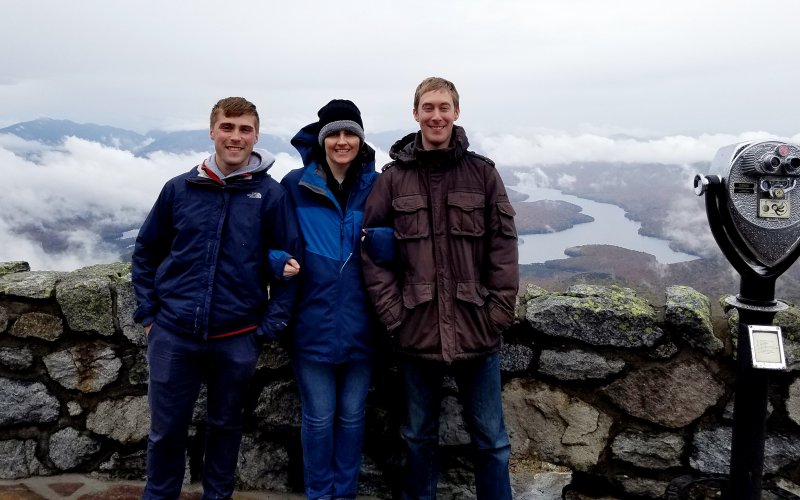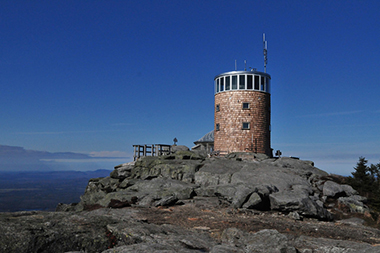NSF CAREER Award Supports Cloud Chemistry Research at Whiteface Mountain

ALBANY, N.Y. (Feb. 27, 2020) – Collecting data from atop Whiteface Mountain in the Adirondacks, atmospheric scientist Sara Lance is focused on the chemistry in the clouds that surround this iconic summit.
A prestigious grant from the National Science Foundation (NSF) will support her research for the next five years.
Lance, a research associate at the Atmospheric Sciences Research Center (ASRC), has been awarded the prestigious Faculty Early Career Development (CAREER) award from the NSF. The grant is presented to a select group of junior scientists who “have the potential to serve as academic role models in research and education and to lead advances in the mission of their department or organization.”
“We are thrilled to see Dr. Lance awarded with such an important recognition by the National Science Foundation. Her research at Whiteface Mountain is going to be critical to improving our understanding of cloud chemistry and its impact on climate, visibility and human health,” said UAlbany Vice President for Research James A. Dias.
“This award yet again shows UAlbany attracts the highest caliber of young scientists across a wide range of research disciplines,” he added.
Chemistry in the Clouds
According to Lance, state and federal air quality regulations have substantially reduced cloud acidity in the
Northeastern U.S. over the last decade. However, more recent WFM samples show a significant change in the region’s cloud chemical regime that needs to be further examined.
Specifically, the droplets are dominated by organics and ammonium. This is very different from the highly acidic regime observed in previous decades, but not necessarily “clean,” Lance said.
Her goal is to develop a new measurement strategy at WFM that will enable more complete characterization of the cloud chemistry.
“The bottom line finding appears to be that the cloud water samples are getting dirtier again,” Lance said. “Our task is to verify that is indeed true, then figure out why this is true, and finally whether the cloud water will continue to get dirtier and if this is a local or more widespread phenomenon at higher elevations.”
“I hope these questions will inspire a new generation to think about the environment, consider their role in maintaining it, and in some cases, consider a career in the environmental sciences,” she added.
Educating Local Students
Lance’s CAREER award provides funding to support a UAlbany graduate assistant for each year of the grant.
It also supports a UAlbany chemistry/climate summer camp that will start next summer. Students in the camp will visit the Uptown Campus and learn about atmospheric science. They will also fly drones and take metrological measurements both on campus and during a field trip to the WFM.
The camp, which is free, will serve students from local urban school districts, many of whom are underrepresented minorities and/or come from economically-disadvantaged backgrounds.
“As a woman scientist and leader, I want to encourage and inspire girls in particular to consider a career within science and engineering fields, which continue to be underrepresented by women and account for some of the highest paying – and, I would argue, fulfilling – jobs out of college,” Lance said.





